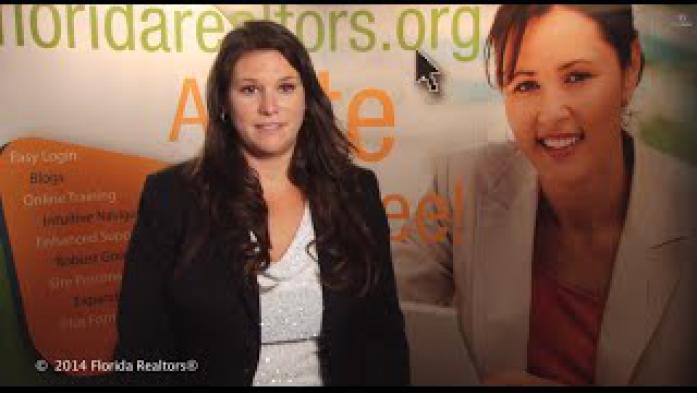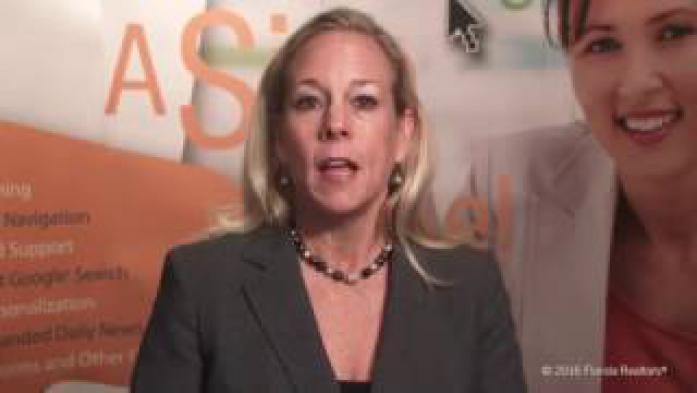
9 Myths About Structuring Your Real Estate Business
We dispel the myths about how to manage your business so you can focus on building a career and selling real estate.
When Pamela Hoffman launched her real estate career in September 2018, she prepared a business plan, set performance goals, and started building her sales and marketing skills. “My broker and my accountant helped guide me in structuring my business and helping me learn about real estate,” says Hoffman, a sales associate with Watson Realty in Ponte Vedra. “Having a plan in place helped me be successful my first year.”
Like other new Florida sales professionals, Hoffman faced a wide range of issues relating to legal structures, taxes, insurance, equipment and more.
How To Structure Your Real Estate Business – Legally
“My accountant advised me to form an S-corporation, and to keep my business income and expenses separate from my personal finances,” she says. “We also talked about ways to protect my family from business risks.”
With nine transactions valued at $3.1 million her first year, Hoffman’s career is off to a great start. But not all sales associates take the time to set up a strong foundation before jumping into real estate.
“You need to put business systems in place right from the start,” says Chris Bird, CFP, a tax expert familiar with real estate. “That includes setting up a business checking account and a dedicated credit card for the business.”
New sales associates also need to beware of some common myths that can lead to costly mistakes.
Myth No. 1: I’ll incorporate later.
Incorporating your business can provide legal protection against financial liabilities, says Jo Ann M. Koontz, Esq., CPA, Koontz & Associates, in Sarasota.
But many real estate professionals put things off until their business is up and running. However, incorporating should be done before you start selling.
“It’s better to start off with a limited liability corporation (LLC) or another business entity,” she says. “You also need to file the necessary documents with the Florida Real Estate Commission (FREC) as well as your broker. Talk with your accountant to be sure you comply with all the state and federal rules.”
Myth No. 2: The same structure is right for everyone.
Your accountant or attorney can discuss the different types of corporate structures, such as an S- or C-corporation, an LLC or a partnership.
“You should see what works best for you, in terms of your household income, your goals and your stage in life,” says Joe Boyd, a board-certified attorney in real estate and marital law at Boyd Durant, P.L. in Tallahassee. For instance, a single person in their 20s might have a different career plan than a veteran entering real estate in their 50s.
Myth No. 3: I’m going to focus on sales, not finance.
If you’re not a numbers person, find a good accountant who can help you keep track of expenses, as well as commission income, says Bird.
“One of the biggest problems I see is not watching the dollars,” he says. The biggest mistakes: Not saving to pay quarterly taxes or budgeting for marketing. “You should prepare a monthly profit and loss statement, using your bank records, so you know how the business is doing. Successful real estate professionals watch the numbers closely.”
Myth No. 4: Getting a big commission is more important than anything else.
Nichole Lathrop started her career as a sales associate with Keyes’ Fort Lauderdale office in 2018. Rather than worrying about her first commission check, she focused on getting the right training.
“It takes coaching and training before you can start getting the deals,” says Lathrop, who reached about $6 million in sales in her first year as a member of a two-person team.
Now operating independently, she incorporated, put together a new business plan and is working toward several professional designations. The sales will come, she says.
What Realtors Need to Know About E&O Insurance
Myth No. 5: I’ll wait until April 15 to think about my taxes and deductions.
Tax planning should begin before you receive your first commission check, says Bird.
As an independent contractor, you will likely be paying quarterly taxes, so start saving immediately (see Myth No. 6 and Myth No. 3). Also, your startup expenses, for example, could be applied against future business income.
You could also pay those bills—including technology purchases like a new laptop, tablet or smartphone—before December 31 so you can deduct them in April, rather than waiting another year.
When Lathrop started, she immediately began tracking business expenses, including her home office and mobile phone, and she used a mileage tracker (Mile IQ) to separate business and personal miles on her vehicle.
Myth No. 6: I’ll have plenty to spend, once the commissions start coming in.
To succeed in real estate, you must manage your money or engage someone else to do it for you, says Boyd.
“Some sales professionals spend money as soon as it comes in without putting a percentage of that money away for taxes, [marketing or business expenses],” he says. “[Putting money away] allows you to pay your taxes on time and avoid penalties. You don’t want to have a great year in terms of income and wind up owing money to the Internal Revenue Service.”
Myth No. 7: My broker will take care of insurance.
While your broker may offer errors and omissions (E&O) coverage, you’ll probably need other types of business insurance to protect against financial loss. “Let’s say you’re driving someone around showing property and get into a bad accident,” says Koontz. “Or, a prospective buyer slips and injures herself while touring a home. Real estate is a high-risk business, and it’s important to have adequate coverage.”
A qualified insurance agent can go over your options with you.
Myth No. 8: I don’t need to read my insurance policy.
Any insurance policy is a complex legal contract.
“It states what it covers, the limits of that coverage as well as any exclusions,” says Trevor Williams, commercial risk adviser, BKS Partners in Tampa. “When you buy a policy, you might think you’re covered when a risk is actually excluded.”
For instance, many new policies exclude COVID-19-related problems. “Be on the lookout to avoid surprises in the future.”
Myth No. 9: Buying the latest technology will help me get a great start.
New sales associates get lots of offers to buy “shiny new tools,” says Hoffman. But it’s better to wait until you get a better understanding of what you’ll need for the business, she adds. Many times, your broker may offer tools that you can use. “Use the platform and applications from your brokerage. Don’t spend money until you know it will benefit your business,” she says.
Success in a real estate career doesn’t happen overnight, says Boyd. It takes time to generate sales, build a referral base and grow your operations. That’s why it’s so important to put a strong business foundation in place right from the start. “Few people succeed accidentally,” says Boyd. “If you work hard, serve your customers well, and pay attention to the details, you have a great career opportunity ahead of you.” #
Richard Westlund is a Miami-based freelance writer.


